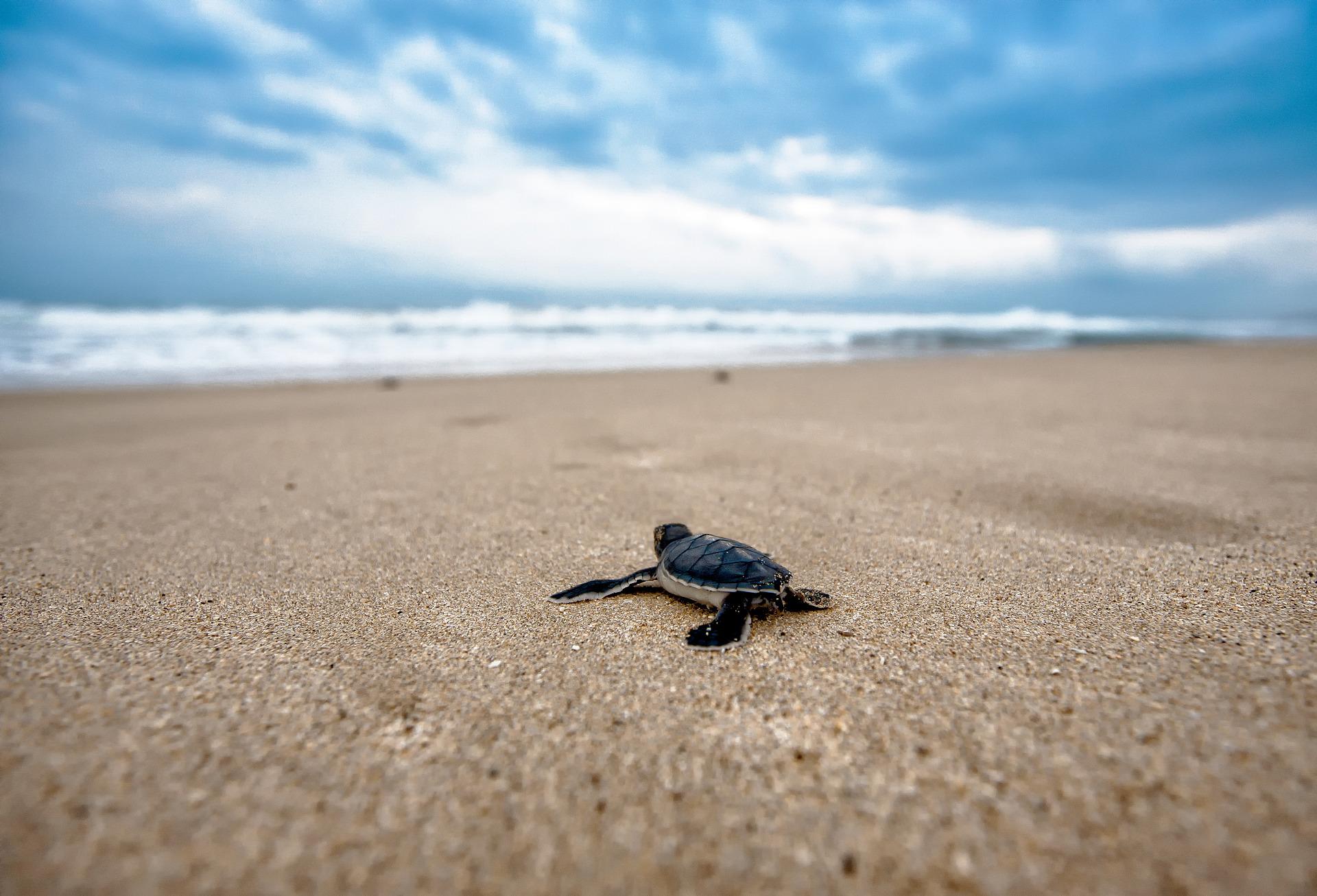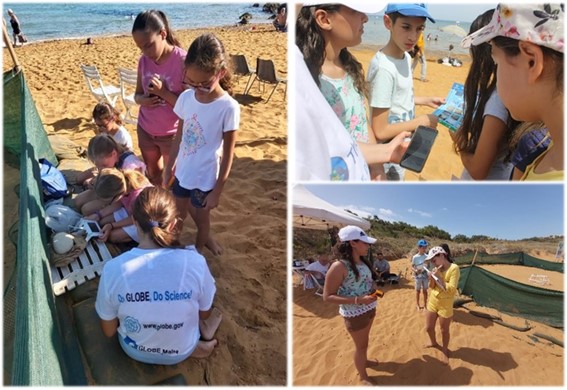Gozo College, Middle School
Research question: What was the research question? What are the underlying regional problems?
- What are the ideal environmental conditions for a successful turtle nest?
- Does climate change affect turtle hatchlings?

Approach: How did you proceed?
On Friday 29th May 2020, at around 22:00, a loggerhead turtle laid eggs on Ramla Bay in Gozo. This was the first recorded and confirmed nest in Gozo after 70 years and it sparked interest in conserevation and marine life. Students measured surface and ground sand temperature from and around nest site, air temperature, humidity and barometric pressure 3 times daily (morning, afternoon, evening) throughout the whole incubation period between June and August.
During site visits the students noticed, on many occasions, that the beach was full of litter especially cigarette butts and microplastics. To back up the educational process and support wildlife, the students took the initiative and organised a beach clean-up event. They teamed up with volunteers from Nature Trust FEE Malta (a local NGO) and the general public.

Solution: What are your findings?
All data collected was analysed during online meetings and concluded in January 2021.
- Research shows that if a turtle’s eggs incubate below 28°C, the turtle hatchlings will be male. If the eggs incubate above 31°C, the hatchlings will be female. Temperatures that fluctuate between the two extremes will produce a mix of male and female baby turtles.
- During incubation period sand temperature never exceeded 30°C, so most hatchlings were males. 84 hatched out of 105 (but 2 of them were dead)
Besides lots of cigarette butts, bottle caps, straws and cotton bud sticks, thousands of small pieces of plastic including nurdles were collected from sieving the sand during the beach clean-up.
Recommendation: What solutions have you developed for the regional problem(s)?
Most of the students were accompanied by parents and other family members during their data collection sessions. In collaboration with Nature Trust FEE Malta students promoted the Adopt the Turtle Campaign.
Dissemination: How did you promote your recommendations?
The students participated in 2 online meetings with students from the University of Lima. They spoke about their experience and shared the results of their investigation on marine litter and data collected from turtle nest site in Ramla Bay with 1st year General Ecology students attending Universidad Nacional Agraria La Molina in Lima, Peru. The students shared their findings and together they discussed the ideal conditions for a turtle nest to be successful. The project was also submitted and received awards in the International Virtual Science Symposium organized by the GLOBE Programme.
